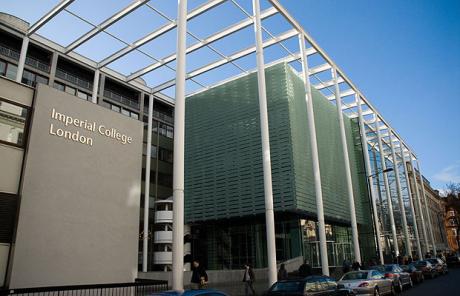Reason to trust

How Our News is Made
Strict editorial policy that focuses on accuracy, relevance, and impartiality
Ad discliamer
Morbi pretium leo et nisl aliquam mollis. Quisque arcu lorem, ultricies quis pellentesque nec, ullamcorper eu odio.
Scientists at the Imperial College London has announced the formation of the new Imperial College Centre for Cryptocurrency Research and Engineering (IC3RE), to study the potential of the distributed ledger system of Bitcoin as a peer to peer trust and ownership protocol for governments and businesses worldwide.
The decentralized and transparent nature of the distributed ledger technology allows organizations to create different sets of non-refutable and unbreakable data, opening up a window of possibility for the development of unique trust-based applications, such as decentralized property ownership systems, automated and public voting systems and transparent business management systems.
“Many financial institutions are focusing on how they could use distributed ledgers to improve banking, but we feel the potential applications are much broader and far-reaching. It could spawn completely new modes of doing business. The opportunities are limitless and work at the Centre aims to make the adoption of distributed ledger technology by society as smooth as possible,” said IC3RE Assistant Director Catherine Mulligan.
Importance of Decentralization
Imperial College London is taking a slightly different approach from banks and financial establishments that are actively looking into the blockchain technology. Instead of developing a centralized application on a decentralized network, scientists at IC3RE are trying to maintain the decentralized nature of the distributed ledger technology while creating a unique ownership application that could be implemented across various industries.
“We are on the brink of the next digital revolution. The College is in a unique position to harness the potential of the technology that currently powers cryptocurrencies. Just as the industrial revolution and the internet spawned innovation, so too will this technology, opening the doors for new business models to be developed and helping existing companies improve the way they do business and the way communities live their lives,” Center Director Professor William Knottenbelt announced in a statement.
Long-term Vision
The IC3RE team believes that distributed ledgers may ultimately lead to the exchange of value by devices on the Internet of Things. The team is looking into technologies such as blockchain-enabled home, cars and other alternative technologies connected to the distributed ledger system to collect and exchange data.
With the assistance from full-time researcher Iain Stewart, Imperial Center aims to search for methods to secure and scale distributed ledgers, to allow a wider range of businesses and institutions to adopt the technology.
As Andreas Antonopoulos stated in a talk at Wired Money Conference, “Bitcoin is the internet of money. Currency is just one of its first applications.”
References:
Smith, Colin. “Technology behind Digital Currencies like Bitcoin to Benefit Wider Society.” Imperial College London. Imperial College London, 18 Nov. 2015. Web. 19 Nov. 2015. <http://www3.imperial.ac.uk/newsandeventspggrp/imperialcollege/newssummary/news_18-11-2015-14-9-38>.
Antonopoulos, Andreas. “Beyond Bitcoin, Unleashing the Blockchain.” Wired Money 2015. London. 17 July 2015. Lecture.
Image taken from Imperial College London




























Dear Joseph,
Thanks for covering this story. Would you mind correcting a few points please, so that it is accurate.
The points are:
1. In the first paragraph you’ve written: “Scientists at the new Imperial College Centre for Cryptocurrency Research and Engineering (IC3RE) has formed a new research group”
That is incorrect. The story formally announces the creation of the Centre, not a research group. Can you please correct.
2. In the second last paragraph, you’ve written “Under the leadership of full-time researcher Iain Stewart”. The word ‘leadership’ implies that i Stewart is leading the Centre, which is not the case. He is a full-time researcher employed by the Centre. William Knottenbelt is leading the Centre. Can you please make that correction.
Many thanks and thanks once again for covering this story. We really appreciate it.
Colin Smith